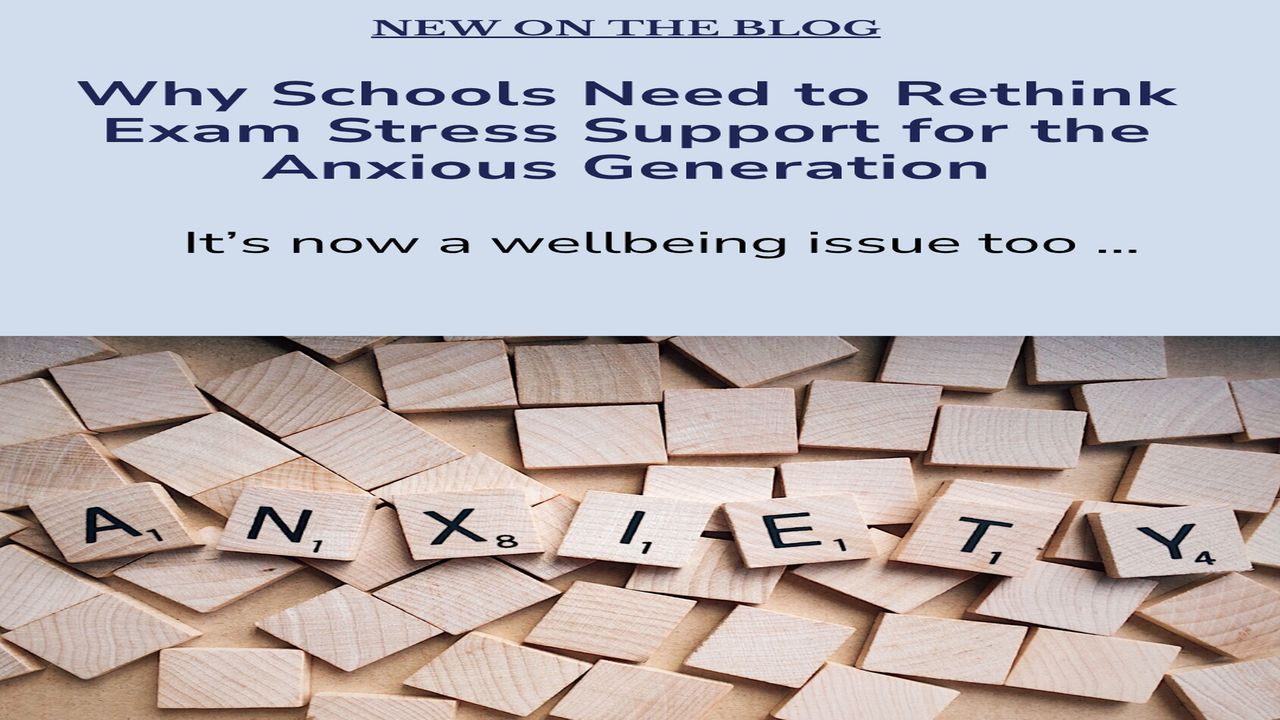Why Schools Need to Rethink Exam Stress Support for the Anxious Generation

Since the pandemic, we’ve seen a dramatic shift in the emotional and mental health landscape of our students. The generation coming through our schools today has grown up in the shadow of COVID-19 — with long-term disruption to their routines, social development, and sense of safety. This isn't just a wellbeing issue — it’s impacting behaviour, learning, and ultimately, exam performance.
The Rise of Exam Anxiety and Isolation Requests
As exam season approaches, one trend is impossible to ignore: the growing number of students requesting separate invigilation due to anxiety. For many schools, the sheer volume of these requests is overwhelming — not because the students are misbehaving, but because they are genuinely struggling to manage the emotional pressure of the exam environment.
The truth is, students aren’t choosing to be difficult. Their behaviour is often a reaction to stress they don’t yet have the tools to manage. What looks like avoidance, disruption, or disengagement is usually a signal: “I’m scared, I feel out of control, and I don’t know what to do about it.”
Understanding the Root Cause of Exam Reactions
Under pressure, students’ fear responses are often automatic. Their nervous system is in fight, flight, or freeze mode — fuelled by stress hormones and triggered by internal thoughts they may not even realise they’re having. When the amygdala (the brain’s threat detector) takes over, logic and reasoning go offline. That’s why we see panic, shutdown, or misbehaviour that seems out of proportion.
Our challenge as educators and school leaders isn’t just to react to the behaviour — it’s to understand the thinking that causes it. What are the triggers? What internal stories are students telling themselves in the lead-up to exams? And how can we help them shift their automatic reactions into more helpful responses?
A Long-Term Solution, Not a Quick Fix
Let’s be honest: offering isolated rooms or ‘plasters’ for every overwhelmed student might feel like a short-term solution, but it isn’t sustainable — nor is it truly supportive. In fact, it can reinforce the message that students can’t cope unless they’re removed from the group.
Instead, we need to build long-term, curriculum-wide strategies that help students manage stress before it spirals. That means teaching them how their brains and bodies work under pressure, giving them practical tools to handle anxiety, and helping them feel confident re-engaging with their peers.
We can’t wait until panic strikes. We need to prepare students ahead of time — not just academically, but emotionally and mentally, too.
Bring the Exam Reaction Plan Into Your Curriculum
Now is exactly the right time to plan ahead though it’s already too late for your current cohort of exam students
Our Exam Reaction Plan is designed to be embedded into your curriculum well before exam stress sets in. It helps students:
- Understand their stress triggers and thinking patterns
- Learn calming strategies to stay in control during exams
- Build confidence through preparation and emotional regulation
- Reduce behavioural incidents linked to unmanaged pressure
By tackling exam anxiety at its root — not just its symptoms — schools can support student wellbeing and improve exam outcomes. It’s not just a plan for exam season; it’s a tool for long-term resilience.
Plan ahead now for next year’s exams.
Help your students respond to stress with calm, clarity, and confidence.
👉 Learn more about my CPD Workshops and how they can support your students all year round.